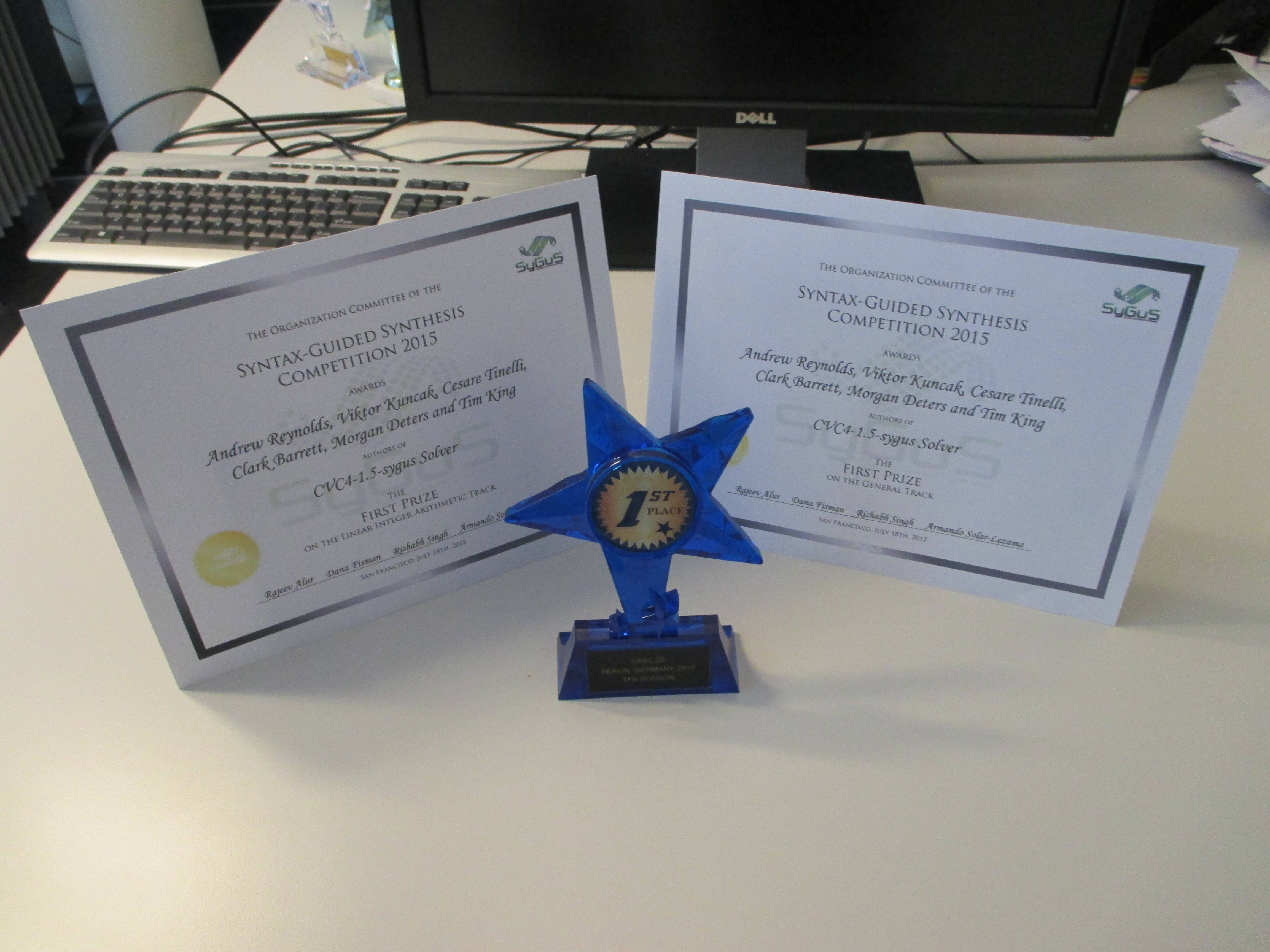CVC4
An efficient open-source automatic theorem prover for satisfiability modulo theories (SMT) problems.
About
News
Downloads
Documentation
Publications
Awards
People
History
Third-Party Applications
Acknowledgements
2015 Competition Results
by Clark Barrett
CVC4 won several honors at competitions this year. As with last year, CVC4 won the most divisions of the main track of the SMT-COMP competition:1 of 28 competitive divisions, CVC4 won 12, Yices won 11, Boolector won 3, and CVC3 and AProVE each won one. CVC4 was also the overall winner.2 Note that once again, Z3 was not an official competitor this year, but it was run on the competition benchmarks for comparison purposes. If Z3 had been in the competition, the number of competitive divisions would have increased to 38 with the following breakdown: CVC4 wins 14, Z3 wins 12, Yices wins 8, Boolector wins 3, CVC3 wins 1.

In addition to SMT COMP 2015, CVC4 entered two other competitions this year: CASC 25, the competition for automated theorem provers,3 and SyGuS Comp 2015, the competition for syntax-guided synthesis solvers.4
In CASC 25, CVC4 entered four divisions. It won the typed first-order non-theorems (TFN) division, and came in 2nd in the typed first-order theorems (TFA) division. For these divisions, CVC4 used new counterexample-guided quantifier instantiation methods for handling arithmetic, combined with E-matching and conflict-based instantiation for handling uninterpreted functions. For the latter of these divisions (TFA), it narrowly lost to VampireZ3, which combines a new approach for Avatar in Vampire with ground solving in Z3. It also did fairly well in the first-order theorems division (FOF), where it placed 5th, only trailing versions of Vampire and E.
In SyGuS Comp 2015, CVC4 entered three tracks, the General track, the Conditional Linear Arithmetic track, and the Invariant Synthesis track. It won both the General and Conditional Linear Arithmetic tracks. It won the latter track by a significant margin, solving more benchmarks than all other solvers combined. It used counterexample-guided quantifier instantiation for both of these tracks, which is in ongoing development in CVC4.



